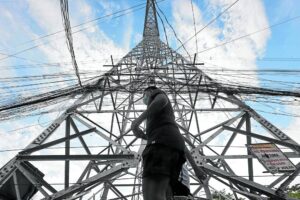Penalizing political turncoatism, or party switching, before and after the elections could lead to better representation from political parties and genuine choices for voters, according to a study by a democracy coalition amid ongoing talks to reform the 1987 Constitution.
Released on Monday, Participate PH’s study “Proposed Electoral and Political Reforms” puts forward several measures that could protect the integrity of the electoral process and promote more competitive elections.
These proposals coincide with ongoing discussions to amend the 1987 Constitution, especially as many of its proponents seek to institutionalize political reforms to the Charter.
But even without touching the Charter, Congress could already amend the Omnibus Election Code, existing electoral laws or pass new legislation to strengthen the country’s party system, the study noted.
The ideal reform regarding political parties, it said, is to enact a political party development bill into law. Such a bill should include a list of penalties for political turncoats such as forfeiture of elected positions if they change affiliation within one year before or after the elections.
This includes, among others, automatic disqualification in the succeeding elections, and refund of all amounts they received from their political party with a 25-percent surcharge.
The study also listed a laundry list of requirements and penalties for political parties that exploit loopholes in the law to gain power. Among others, it called to amend laws to restrict party list group nominees to actual representatives of vulnerable and marginalized sectors.
It also sought reforms that ban substitution of nominees.
Meanwhile, Senate Minority Leader Aquilino Pimentel III on Monday said proponents of Charter change (Cha-cha) were only fueling public resistance by inserting a “rider” in altering the 1987 Constitution to allow foreigners to acquire land in the country.
“Land ownership is sacred and a very personal issue to many Filipinos,” Pimentel said in a statement. “They want to open up land ownership to foreigners. Why is it there?” he pointed out.
Removing the constitutional prohibition on foreign ownership of properties would only “result in more opposition to the call for Cha-cha right now.” INQ


